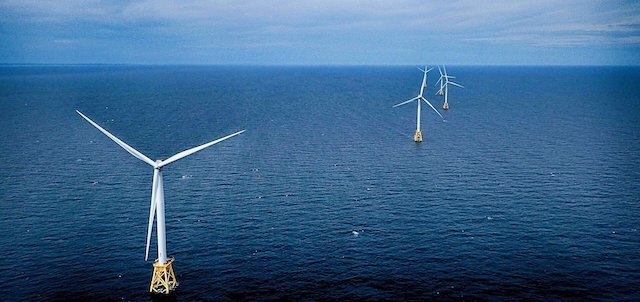
In a new study, researchers predict the future of offshore wind power in the US.
According to the study, wind power implementation will not be as simple or as green as it may seem.
The research was conducted by a team from Yale University.
Wind power production has become the largest source of renewable energy in the U.S., according to the American Wind Energy Association.
Now there are more than 56,800 wind turbines in 41 states and territories.
Wind power produces more than 6% of the nation’s electricity and it supports more than 105,000 jobs and receives billions of dollars in private and public investment.
Recently, the U.S. Department of Energy (DOE) plans to expand the nation’s wind sector into offshore waters.
But the Yale study challenged the DOE’s plan.
The team suggests that large amounts of rare-earth metals will be needed to build these offshore wind turbines. And there will be environmental, economic, and geopolitical issues.
According to the researchers, turbines are enormous and require incredibly powerful magnets that use the element neodymium, which is a rare-earth metal.
The required amounts are about 2,000 pounds for each magnet. But the DOE plan also does not consider the availability of neodymium.
Nearly all of the world’s neodymium is mined in China, where costs are cheaper and environmental regulations are less stringent.
Currently, the magnets are built in Japan, and then they are shipped to France where they are fitted into the turbines.
The team suggests that each step may have issues, such as the current fractious trade relationship between the U.S. and China. This can harm the supply chain.
The team also found that creating a domestic program to build and install offshore wind turbines would raise questions of natural resource consumption, regional demand, and the recyclability of the turbine technology.
The researchers suggest that there should be a conversation of internalizing production of these turbines to reach the proper management.
The authors of the study are Tomer Fishman a former post-doctoral student at Yale School of Forestry & Environmental Studies (F&ES) and Thomas Graedel a professor emeritus at F&ES.
The study is published in the journal Nature Sustainability.
Copyright © 2019 Knowridge Science Report. All rights reserved.



